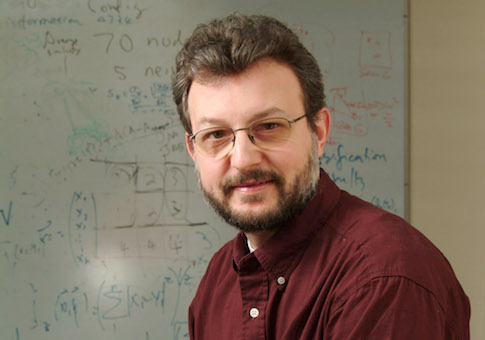The House Science, Space, and Technology Committee sent a letter to the head of the National Science Foundation (NSF) on Monday, demanding answers about the origins of the nearly $1 million taxpayer-funded project to track "misinformation" on Twitter.
The Truthy project, being conducted by researchers at Indiana University, is under investigation for targeting political commentary on Twitter. The project monitors "suspicious memes," "false and misleading ideas," and "hate speech," with a goal of one day being able to automatically detect false rumors on the social media platform.
The web service has been used to track tweets using hashtags such as #tcot (Top Conservatives on Twitter), and was successful in getting accounts associated with conservatives suspended, according to a 2012 book co-authored by the project's lead researcher, Filippo Menczer, a professor of Informatics and Computer Science at Indiana University.
Menczer has also said that Truthy monitored tweets using #p2 (Progressive 2.0), but did not discuss any examples of getting liberal accounts suspended in his book.
"The Committee and taxpayers deserve to know how NSF decided to award a large grant for a project that proposed to develop standards for online political speech and to apply those standards through development of a website that targeted conservative political comments," wrote Chairman Lamar Smith (R., Texas) in a letter to NSF Director France Cordova.
"While some have argued that Truthy could be used to better understand things like disaster communication or to assist law enforcement, instead it appears Truthy focused on examples of ‘false and misleading ideas, hate speech, and subversive propaganda’ communicated by conservative groups," he said.
Smith is asking for the original application for the study, and "every internal and external e-mail, letter, memorandum, record, note, text message or other document" sent or received by the NSF about Truthy since the study began in 2011.
Smith’s letter references a publication co-written by Menczer which explains how the project was used to track tweets before the 2010-midterm elections.
In "Abuse of Social Media and Political Manipulation," a chapter for the book The Death of the Internet, released in 2012, Menczer writes how his team successfully had Twitter accounts suspended.
"With the exploding popularity of online social networks and microblogging platforms, social media have become the turf on which battles of opinion are fought," the chapter begins. "This section discusses a particularly insidious type of abuse of social media, aimed at manipulation of political discourse online."
Truthy tracked up to 8 million tweets per day in the run up to the 2010 midterms, and stored 600,000 political tweets in their database, contrary to Menczer’s claim that Truthy does not "have a database." This section of the Truthy website was recently deleted, following an editorial by FCC Commissioner Ajit Pai warning the project could be misused.
"The streams provided our system with up to 8 million tweets per day during the course of the study," the paper said. "These were scanned in real time by our system. In total, our analysis considered over 305 million tweets collected from September 14 until October 27, 2010."
"Of these, 1.2 million contained one or more of our political keywords; detection of interesting memes further reduced this set to 600,000 tweets actually entered in our database for analysis," the paper added.
"We don’t have a database," Menczer said when attacking the Washington Free Beacon’s initial story on Truthy.
The database was used to identify "several Truthy memes, resulting in many of the accounts involved being suspended by Twitter," the chapter said.
Truthy was able to suspend the account of C. Steven Tucker, a health insurance broker, who often used the hashtag "American Patriots," or #ampat, from his two Twitter accounts.
"This activity generated traffic around this hashtag and gave the impression that more people were tweeting about it," the chapter said. "These two accounts had generated a total of over 41,000 tweets."
Another account, @PeaceKaren_25, was suspended after tweeting in support of Speaker of the House John Boehner (R., Ohio) over 10,000 times in four months. "A separate colluding account @HopeMarie_25 retweeted all the tweets generated by @PeaceKaren_25 supporting the same candidates and boosting the same websites," the paper said.
Smith said it is troubling that the project was able to delete and suspend Twitter accounts.
"Whether by amazing coincidence or on purpose, it appears that several social media accounts highlighted by Truthy were subsequently terminated by the owners of the social media platforms, effectively muzzling the political free speech of the targeted individuals and groups," he said. "In presenting and publishing the findings of their work, the Truthy research team proudly described how the web service targeted conservative social media messages. Their presentations featured examples of what they found to be online political speech ‘abuses’ by supporters of these groups."
A spokesman for Indiana University said that they are "aware of the letter but have no comment."
